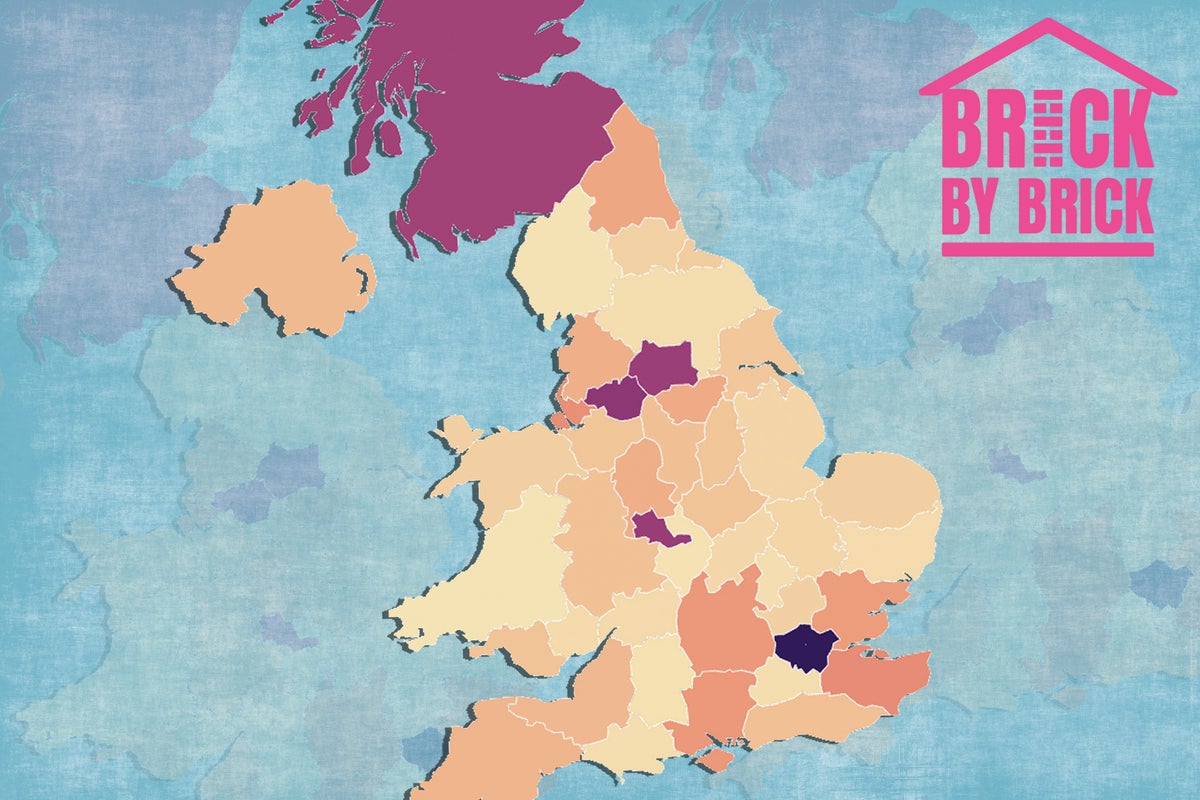
Your support helps us to tell the story
Shocking figures on domestic violence reveal that crimes against women and girls are increasing across the country.
An estimated 2.1 million people in England and Wales experienced domestic abuse in the year ending March 2023, with women disproportionately affected. More than 1.4 million women and 751,000 men suffered domestic abuse in the last year, according to Crime Survey for England and Wales (CSEW).
Despite these figures, it is estimated that less than 24 per cent of domestic abuse is actually reported to the police, according to Refuge, The Independent’s charity partner which specialises in supporting survivors of such abuse.
On average, one woman is killed by an abusive partner or former partner every five days in England and Wales, according to Refuge. The charity also found one in four women in England and Wales will experience domestic abuse in her lifetime.
As a result, this publication and Refuge have launched the Brick by Brick campaign to raise £300,000 to build a safe home for women to escape their abusive partners. The figures come as The Independent’s generous readers have so far raised more than £26,000 towards the cause.
Be a brick, buy a brick and donate here or text BRICK to 70560 to donate £15
The latest figures show the police recorded 1,453,867 reports of domestic abuse-related incidents in England and Wales over a 12-month period – 889,918 of which ended up being considered criminal, according to the Office for National Statistics.
Of the nearly 900,000 crimes recorded by police, 47,361 led to a perpetrator being charged with an 80 per cent conviction rate. Domestic abuse is often not reported to the police. The data, therefore, only provides a partial account of the actual levels of abuse experienced.
This interactive map shows the number of domestic abuse crimes recorded by the police in the year ending March 2023, broken down by area. Darker areas on the map show where the highest numbers of recorded domestic violence crimes take place.
Record numbers of domestic abuse survivors referred for homelessness
The scale of abuse across the country comes as exclusive data obtained by The Independent from Refuge reveals its National Domestic Abuse Helpline is referring more victims to the Homeless Persons Unit than ever before.
This year so far the helpline has supported people 49,787 times – 75 per cent of these were survivors of domestic abuse. The helpline was contacted 171,490 times in the year ending March 2023. Every two minutes someone turns to Refuge for support.
The charity has also supported 25,487 women and children through its services, providing 23,958 people with outreach community-based services and 1,529 survivors given temporary accommodation and support.
These safe spaces, known as domestic abuse refuge services, provides emergency accommodation for victims with a planned programme of therapeutic and practical support. They are shared with other women who have also suffered abuse.
The number of refuge bed spaces has increased in recent years in England from 3,923 in 2020 to 4,385 in 2023. However, this remains 22 per cent below the minimum recommended by the Council of Europe.
This is why the Brick by Brick campaign is so important and will provide a home for an entire family – including any pets – for six months at a time, fully supported by Refuge.
There were 43,774 offences of coercive control recorded by the police in England and Wales in the year ending March 2023. Coercive behaviour is a continuing act or a pattern of acts of assault, threats, humiliation and intimidation or other abuse that is used to harm, punish or frighten their victim.
Economically abusive behaviour
Nearly 9 million have experienced economically abusive behaviour in a current or former relationship, according to Refuge. Despite this, only 16 per cent of people describe, or recognise, their experiences as abuse.
Economic abuse involves the control of a partner or former partner’s money and finances, as well as the things that money can buy. It can include exerting control over income, spending and bank accounts.
This form of abuse rarely happens in isolation. More than eight in 10 people who experience it also experience other forms of domestic abuse including physical, sexual and emotional abuse.
Refuge also found survivors experiencing economic abuse can be left with long-term debt. The average economic abuse survivor who finds themselves in debt will owe £3,272, and one in five will have debts of over £5,000. Overall, £14.4bn of UK household debt can be directly attributed to economic abuse.
Please donate now to the Brick by Brick campaign, launched by The Independent and charity Refuge, to help raise £300,000 to build a safe space for women where they can escape domestic abuse, rebuild their lives and make a new future.







